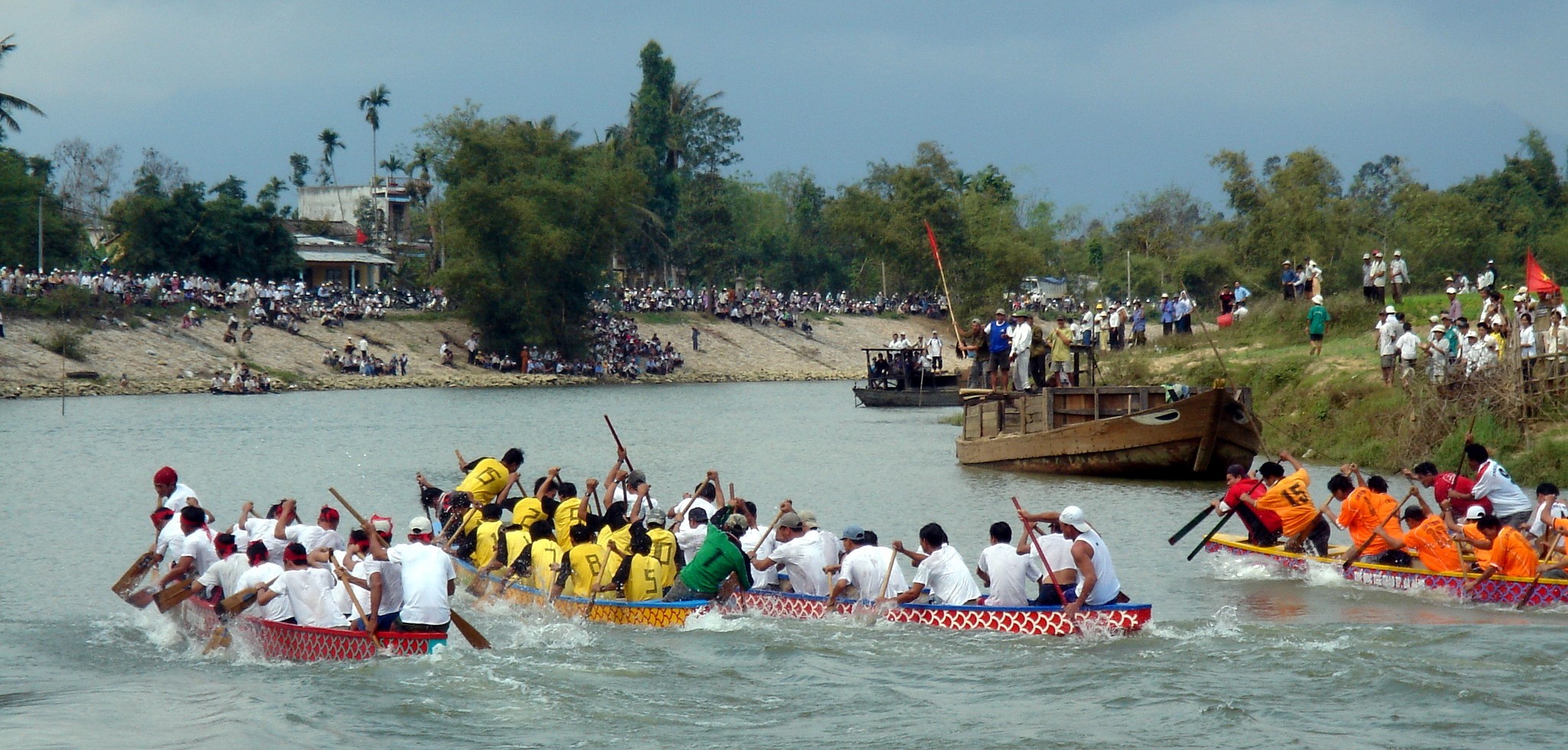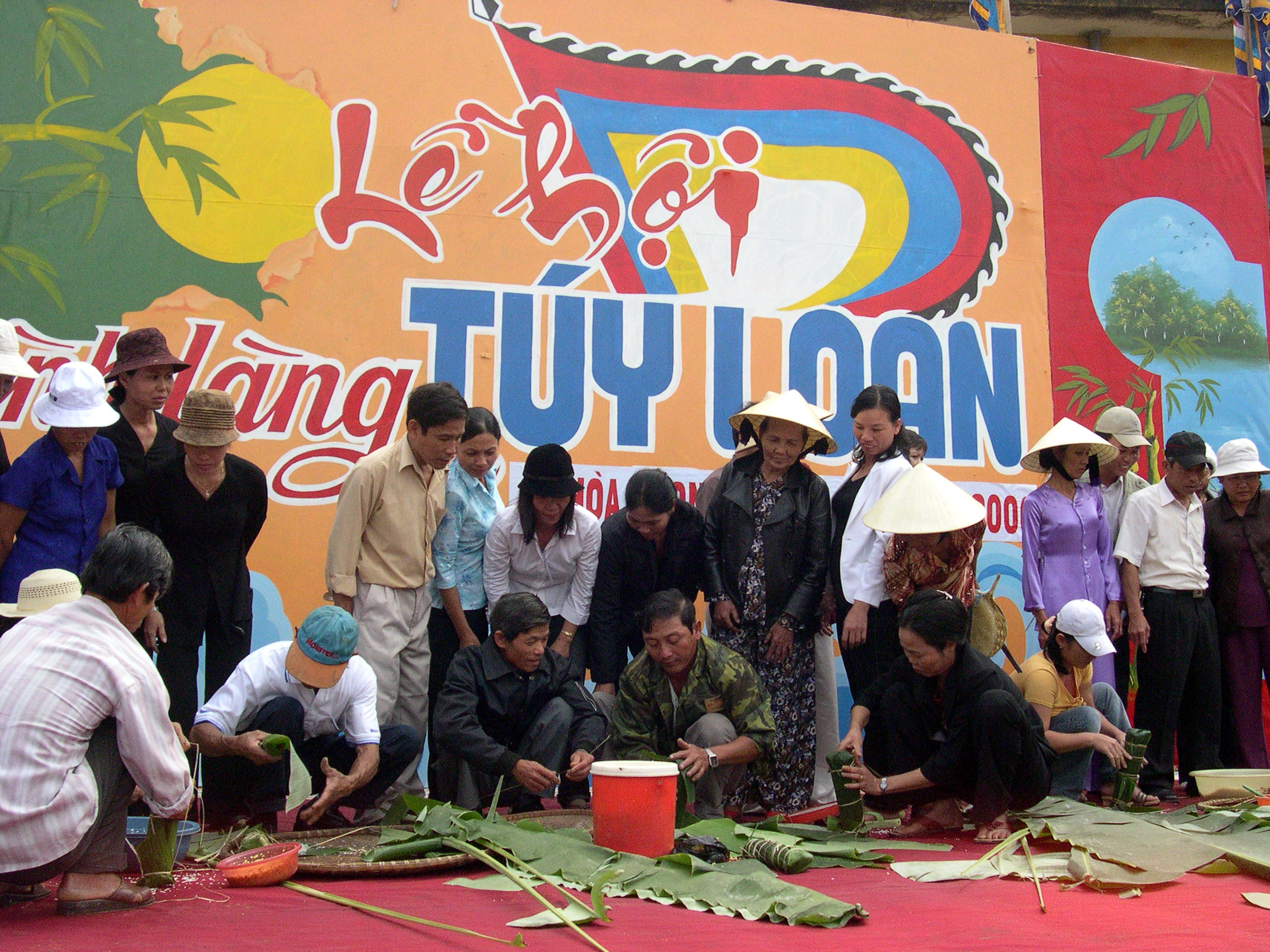Folk games - indispensable part of traditional festivals
Numerous interesting festivals are taking place across the city, especially in Hoa Vang District, from the 1st -3rd lunar months. Included are the traditional Tuy Loan Village Communal House, ‘Cau Ngu’ (Fish Worshipping) and Muc Dong festivals.
 |
| A traditional boat race on the Tuy Loan River |
These events feature many solemn traditional activities, including royal honour ceremonies to confer diplomas, and incense-offering and gift-giving ceremonies in commemoration of national heroes and ancestors.
In addition, exciting folk games are indispensible part of the annual traditional festivals because they make participants happier, and become closer to each other.
Vietnamese folk games are often associated with the traditional living environment, and are close to nature, because they were born under the shortage of facilities as well as simple living conditions as Viet Nam is an agricultural country.
Popular folk games and traditional competitions include ‘bai choi’ (singing while acting as playing cards), grilling ‘banh trang’ (soft rice paper), cooking ‘banh chung’ (square glutinous rice cakes), tug of war, climbing banana trees, catching eels, and walking on stilts.
 |
| The wrapping of ‘banh tet’ (cylindrical glutinous rice cakes) is one of traditional competitions at the annual Tuy Loan Communal House Festival. |
Last, but not least, there are interesting boat races in the traditional festivals.
Over the past several decades, sections of the Cu De River which runs through Lien Chieu District’s Hoa Hiep Ward have enlivened with an annual district-level Boat Race.
The race often features men's and women's team categories, with the participation of fishermen, mainly specialising in seine and drag net fishing, across Da Nang.